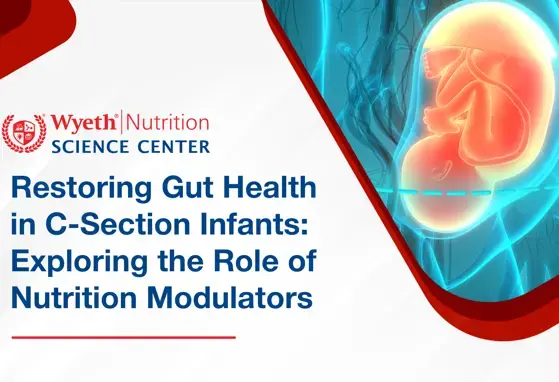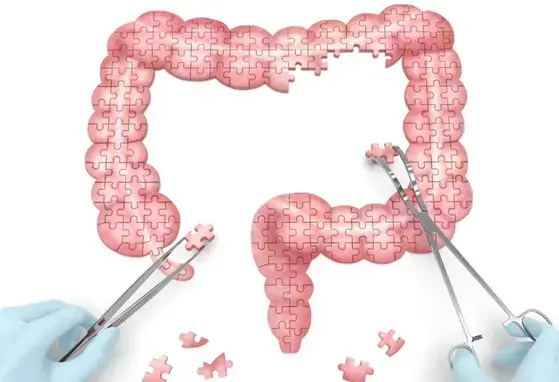Importance of faecal biomarkers and the microbiome’s role in child health and disease… Is it really all about the poop? - Dr. Ben Gold
Diet, environment and microbiota in infancy are factors that can support gut barrier function and immune development. Studies show that nutrition interventions, particularly breastfeeding and human milk oligosaccharides, may influence the development of a normal microbiome.
During the course of this presentation the attendee will learn to recognise mechanisms by which factors such as diet, environment and microbiota in infancy support gut barrier function and immune development. The gastrointestinal or gut microbiota (microbiome consists of the microbes, called the microbiota, plus their by-products, metabolites) is a complex and dynamic environment containing 10–100 trillion micro-organisms, represented by 1,000 species, which are involved in numerous biological processes. The human holobiont is progressively being understood as the collective microbiome and host functions are being better characterised in health and disease, and as we assess both correlation and causal relationships. The gut microbiota assists in the breakdown of foods into metabolically and functionally important metabolites, such as short-chain fatty acids and vitamin K.
A key take-home concept of this lecture is that the microbiota also plays a critical role in immune development and several other areas crucial for future health and that multiple factors influence the establishment of the infant microbiota (e.g. maternal, mode of delivery, breastfeeding). Recent reports from clinical and experimental studies suggest that intestinal colonisation may already begin during foetal life via microbes present in the intrauterine environment, but these findings need further confirmation in large clinical studies. During delivery, and even in the first few days of life, microbes establish themselves and their respective microbial communities in different parts of the gastrointestinal tract. A lack of Bifidobacteria during infancy, such as is observed in infants who are not breastfed, may result in the proliferation of pathogenic bacteria or a decrease in the nutritional status of the infant. Later in life, these micro-organisms, or lack thereof, may play a role in the development or mediation of several acute and chronic illnesses, such as allergy or inflammatory bowel disease. In addition, neonates receive an important inoculum of colonising microbes during vaginal delivery. The significance of vaginal delivery to healthy gut colonisation is underscored by data suggesting aberrant gut colonisation patterns in infants born by caesarean section delivery compared with those born vaginally.
Dysbiosis will be defined, with particular attention paid to the impact of dysbiosis on long-term health. Specifically, dysbiosis refers to an imbalance between the types of organism present in a person’s natural microflora, especially that of the gut, and is thought to contribute to a range of conditions of ill health. The increasing epidemiology of allergic and auto-immune disease, as well as how dysbiosis of the microbiota has been influencing the increase in these disorders, will be reviewed.
Further, biomarkers of gastrointestinal health that are both qualitative and quantitative for specific disease states (e.g. Crohn’s) have been described and thus, it is important to recognize that examination of the stool can provide insight into understanding the child’s immune health. In particular, the use of faecal calprotectin, lactoferrin and microbiome analysis (not yet ready for prime time) will be reviewed. The presentation will provide evidence regarding nutrition interventions, particularly breastfeeding and human milk oligosaccharides, that may influence the development of a normal microbiome. Prebiotics and probiotics as well as synbiotics and postbiotics will be defined, and the evidence supporting the use of prebiotics and probiotics in a variety of diseases will be reviewed.
WYE-EM-107-MAY-20
Reference
Dr. Ben Gold. 9th Annual Wyeth® Nutrition Science Center Global Summit. 2020
If you liked this post you may also like

Restoring Gut Health in C-Section Infants: Exploring the Role of Nutrition Modulators

[Literature library] High sn-2 palmitate infant formula and gastrointestinal (GI) tolerance

[Literature library] Bovine milk oligosaccharides (MOS) support gut microbiota development and intestinal immune defense
![[Literature Library] Epitope-Specific Response of Human Milk sIgA in COVID-19 Recovered Women](/sites/default/files/styles/card_m_mobile/public/2021-07/205_COVID-opt.jpg.webp?itok=jNfgf4cf)
[Literature Library] Epitope-Specific Response of Human Milk sIgA in COVID-19 Recovered Women